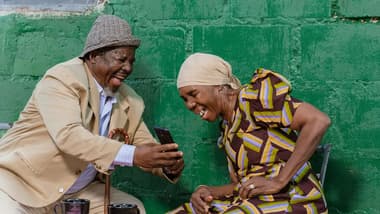Mental Health and Fitness in Kenya
How fitness improves mental health for Kenyans dealing with urban stress.
How fitness improves mental health for Kenyans dealing with urban stress.

Living in urban centers in Kenya comes with unique stressors: traffic jams that stretch for hours, economic pressures, social expectations, and the constant hustle culture. While we've traditionally been reluctant to discuss mental health openly, the connection between physical activity and emotional wellbeing cannot be ignored.
When you exercise, your brain releases endorphins—natural mood elevators that create feelings of happiness and euphoria. This isn't just feel-good talk; it's measurable brain chemistry. Studies show that 30 minutes of moderate exercise can be as effective as antidepressant medication for mild to moderate depression.
For many Kenyans dealing with anxiety about job security, relationship stress, or family pressures, the gym becomes a sanctuary where you can control at least one aspect of your day.
Mental health conversations remain difficult in many Kenyan communities. Phrases like "just pray about it" or "be strong" often replace genuine support. Exercise offers a culturally acceptable way to address mental health without the stigma attached to therapy or medication.
When you tell people you're going to the gym for stress relief, nobody questions it. When you say you're seeing a therapist, conversations get awkward. Use this to your advantage.
Morning workouts help you start the day with a sense of accomplishment before traffic, work demands, or family obligations take over. Even 20 minutes of movement can shift your entire day's trajectory.
Lunchtime walks around Uhuru Park, Karura Forest, or even just your neighborhood provide a mental reset during the workday. Fresh air and movement help clear your head when deadlines feel overwhelming.
Evening gym sessions offer a healthy way to decompress instead of turning to alcohol or endless social media scrolling. The physical exhaustion from exercise promotes better sleep, creating a positive cycle.
One of Kenya's greatest strengths is our sense of community. Group fitness activities—whether at the local gym, football matches, or even walking groups—provide social connection that combats isolation and loneliness.
Join fitness groups on WhatsApp or Facebook. Participate in weekend sports leagues. Find accountability partners who check in when you miss workouts. These relationships often extend beyond fitness into genuine friendships and support systems.
For anxiety: Try exercises like swimming, cycling, or even jumping rope. The repetitive nature helps calm racing thoughts.
For depression: Strength training provides measurable progress and accomplishment. Seeing yourself get stronger week by week builds confidence in other life areas.
For anger management: High-intensity workouts like boxing, sprinting, or circuit training provide healthy outlets for frustration.
For sleep problems: Regular exercise improves sleep quality, but avoid intense workouts within 3 hours of bedtime.
Start small and build consistency rather than burning out with unrealistic goals. A 15-minute daily walk is infinitely better than a 2-hour gym session you can only manage once a week.
Find activities you genuinely enjoy. If you hate running, don't force it. Dance, play football, lift weights, or swim—movement is movement.
Schedule it like medicine. You wouldn't skip taking prescribed medication, so treat exercise with the same seriousness when it comes to your mental health.
Exercise is powerful but isn't a cure-all. If you're experiencing persistent sadness lasting more than two weeks, thoughts of self-harm, panic attacks, or substance abuse issues, professional help is necessary alongside fitness.
Organizations like Befrienders Kenya (0722 178 177) provide confidential support. Many private counselors now practice in major Kenyan cities, and some employers offer employee assistance programs.
As younger Kenyans become more open about mental health, fitness serves as a bridge between traditional resilience culture and modern wellness understanding. You're not being "weak" by acknowledging stress—you're being proactive about maintaining your health.
Physical strength and mental strength aren't separate concepts. Building one reinforces the other. In a society that values strength and perseverance, use exercise to develop both while improving your mental health without needing to announce it to everyone.
Begin with what you can control: your next 30 minutes. Take a walk, do pushups, stretch, or dance to music. Notice how you feel afterward compared to how you felt before.
Mental health is health. Fitness is medicine. In Kenya's challenging urban environment, both are necessities, not luxuries.
Continue reading with these related fitness and health articles




Join the conversation!
Share your thoughts on "Mental Health and Fitness in Kenya" below.